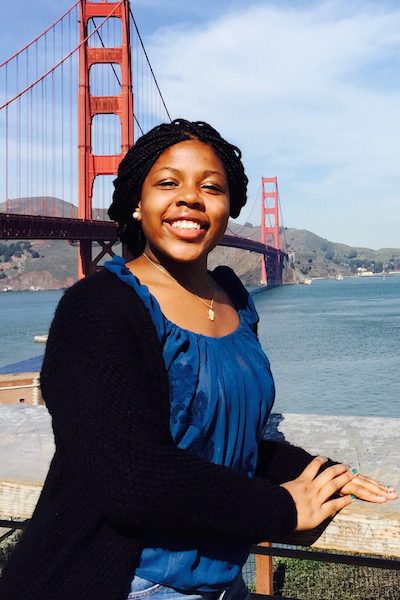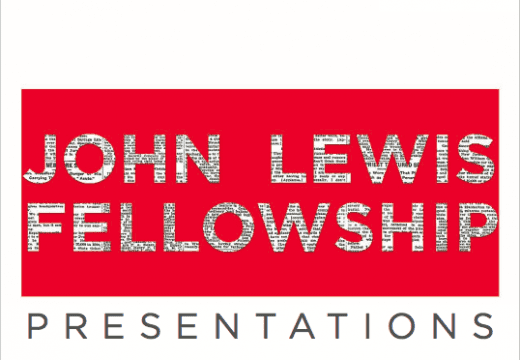Details
Article
It is no secret to us as millennials that when looking at today’s Black Lives Matter Movement in guise of a historical past, the issues of police brutality, mass incarceration and an unfair criminal justice system in America is nothing new. Engrained in America’s history is the countless deaths of innocent black bodies bleeding out at the hands of senseless anger, state sanction violence, and white fear.
However, while we are conscious of the legacy that America fails to grapple with, there seems to be little urge to study and recycle the strategies, tactics and ways of organizing utilized during historical efforts for Black Liberation. Personally, prior to participating in the John Lewis Fellowship, I felt the need to recreate and start the movement anew. Instead of looking back to move forward, the undercurrent theme of the fellowship, I constantly focused on gaining remnants of justice for innocent blood shattered today. Although I can now say I understand my previous sense of urgency for conviction, from this groundbreaking program, I have come to realize that blood of Treyvon Martin pours into the rivers of our ancestors’ like Emmett Till, and creates a stream that seeks to flow towards justice.
Engrained in America’s history is the countless deaths of innocent black bodies bleeding out at the hands of senseless anger, state sanction violence, and white fear.
Throughout my four weeks in Atlanta, I have become more knowledgeable about the tradition of resistance in the Black community and the nature of activism as well as organizing that has passed down for centuries in life lines of blood and generations of those born in black bodies. A legacy that has also been shared with many other oppressed groups at home and around the world. The struggle for freedom seems to be a melody and it is up to us to relearn the notes. Despite the fact it can be argued that the song sung during the Civil Rights and Black Power Movements has never been fully heard in America and Martin Luther’s cry for Freedom to Ring remains unreached, we must seek to understand both the successes and failures of each movement, not to sing the same song, but to fine tune the melody, amplify and reinvent.
The perspectives offered about organizing reshaped my perspective on the current Black Lives Matter movement, and has brought to my attention the historical road we as activist embark on.
Of the many lessons I’ve learned in Atlanta and the information I gathered, the perspectives offered about organizing, reshaped my perspective on the current Black Lives Matter movement, and has brought to my attention the historical road we as activist embark on. From reading different works, meeting with various scholars and having the opportunity to learn from the renowned Historian in Heels, Dr. Karcheik Sims-Alvarado, and the intelligent, well-spoken La’Neice Littleton, I was able to gather the tools used to foster social reform throughout time.
Through the works and examples of Frederick Douglass, W.E.B Du Bois and Booker T. Washington, I was able to understand the importance of education, publishing newspapers and acquiring self-knowledge in the struggle as a gate way to freedom and building consciousness within the community. From the legacy of MLK and Malcom X, I learned the significance of having a well- spoken leader who can appeal to media to serve the needs of the people. With organizers like Roselyn Pope and Adelina Nicholis the role of political advocacy and clearly articulating and writing the demands, goals and shared visions in a clear and concise way became evident.
From Bayard Rustin, I absorbed knowledge about the significance of organizational structure, the role of systemic thinking, strategic planning of demonstrations, and marches that have larger goals and importance. Financial power houses like Alonzo Herndon and institutions like Black Churches helped me understand the need to have resources, a constituency and service programs that provide the financial means to support and fulfill the needs of the community.
Power can arise from rejecting the boundaries and borders created by our oppressors and finding solidarity with other groups and tying together movements.
Moreover, the Black Panther party for Self Defense highlighted the role of coalitions. They illuminated the power that can arise from rejecting the boundaries and borders created by our oppressors and finding solidarity with other groups and tying together movements. Along with the Panthers, Du Bois, Malcom X also stressed the need to think internationally, and build collective identity among black people all over the globe.
While the Black Lives Matter movement has quickly swept the world, internationally, activating people through social media, hashtags, viral videos and t-shirts, in the minds of many Americans and those all over the world, remains the question, what is the movement calling for and what are their demands? The organization on one hand has been successful in raising awareness of the failure of the justice system and the issues of police brutality, but on the other hand there is still a lack of awareness of the movements’ leaders and their vision. Constantly the movement is co-opted and organizations around the world are organizing using the slogan ‘Black Lives Matter’. The state of the movement and its loose structure drowns out and overshadows, Alicia Garza’s. Patrisse Cullors’ and Opal Tometi’s role and their leadership.
We are too often told that our victory does not come in the now, but in the tomorrow.
Within the movement there is a need to build structure, organize protest and to clearly articulate what this movement is about, the vision of the validation of black life and to think about what exactly does that look like? Not only from the founders, but other activist engaged in the movement. It is not enough to demonstrate in order to stop certain police practices, correct the criminal justice system and pressure politicians to rewrite the wrongs. We cannot stay on the streets to dismantle systems and structures, through protesting, from our ancestors we must gather the strength to start articulating our demands, becoming political engaged in policy and thinking about how we can we build new systems, structures and coalitions.
As activist, change agents and leaders, we are too often told that our victory does not come in the now, but in the tomorrow. While this is true, we rest too much hope in the future, and our current leaders, to think that once we start organizing and get people in power to listen, our dreams will come into fruition. We think it is our role to start the commotion needed create the conversation for justice, however I have begun to question our organizing investment in the “someday” and our inability to see that we must start the conversation ourselves. We are doing the resisting, but our we reimagining, storytelling or drafting of the narratives? To put it simply, our work is too fold, to not only organize, but to visualize.
I believe that it is time to reframe the direction of human and civil rights and expand upon the current framework of social justice used to talk about racial inequality in the United States. We must discover new frameworks and invent a language to talk about to the problems that are occurring both in the black community and with all oppressed groups. Frameworks that are not constant co-opted or as Dr. Livingston stated “ethical frameworks” that do not have their history or origin in oppression.
We must play a hand in creating policies, we must play a hand in our future.
Fredrick Douglas, Martin Luther King, Malcom X, W.E.D Du Bois, Booker T Washington, expounded on the notion of freedom. Although they all offered different visions, in some respects, it was shared as economic, personal and political autonomy, the ability to vote, self-determination and perseveration, education, equality, equity and human rights. Martin Luther King painted the picture of his children holding hands with children from other races. Although I have seen how historic black leaders have critically thought about the black struggle and strove to imagine what freedom looks like, there is still the need to continue to do so, not only particular values and ways of life we seek to attain, but also policies and laws.
The Voting Rights act of 1965 is thought to be one of the greatest successes of the Civil Rights movement, however it is an executive order that needs to be renewed every seven years and there are no requirements regarding its enforcement. In fact, in states throughout America there are voting barriers in place suppressing the vote of thousands of voters in unrepresented communities. Furthermore, the Supreme Court has made several rulings that disregarding the act entirely. With this, I hope to bring attention to the need to not only look back to our foundation laid for Black Liberation, but to also imagine true justice, a new role for the police, laws and policies as we forward. We must start to recreate, reimagine and rethink. We must play a hand in creating policies, we must play a hand in our future.


